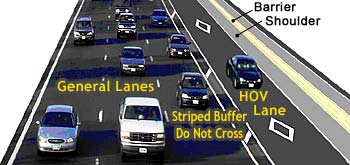
Besides the verdant showcase of spring, what’s happening during May 2012 in Ontario, Canada?
Well, there are at least 14 beneficial, provincial changes happening to help Canadians in Ontario as follows:
This video presents “No More Cell Shock” wherein Margarett Best, Minister of Consumer Services, states:
I have now introduced legislation that, if passed, would give Ontarians control over their cell phone and wireless contracts. To help you understand what this means for you, we have created a Facebook page. Go to Facebook dot com slash no more cell shock to share your thoughts. We will be there to answer any questions you may have. Looking forward to hearing from you!
Margarett Best, Minister of Consumer Services
-
Proposed Wireless Services Agreements Act, 2012
- Here are some disconcerting statistics regarding wireless services for Canadians:
- Recent media polls showed over 94 per cent of consumers want more protection for cell phone contracts and cancellation fees.
- More than 70 per cent of Ontarians have a wireless services agreement.
- About 62 per cent of all complaints received by the federal Commissioner for Complaints for Telecommunications Services in 2010-2011 were about wireless services.
- More than 41 per cent of those complaints came from Ontarians.
- In response to these complaints for telecommunication services, on 3 May 2012, Ontario introduced legislation that would make cell phone and wireless services contracts transparent and eliminate surprise costs.
- This proposed legislation will help eliminate the shock many consumers get from their cell phone and wireless services bills.
- Wireless Services Agreements Act, 2012, if passed, will:
- ensure contracts
- are written in plain language
- itemize services that are included with the basic fee
- and those which would result in higher costs
- also require wireless providers to
- get express consumer consent before renewing or amending a fixed-term contract
- allow customers to cancel contracts before the end of the term with a cap on cancellation fees
- ensure contracts
- The legislation will
- affect new contracts of cell phone and wireless services
- take effect six months after being passed
- also cover existing agreements that are amended, renewed or extended after it takes effect
- “To educate and protect Ontario families by ensuring a fair and safe marketplace”
To get more info, please click on the following text:
- Cell Shock To Be Stopped!
- Read about Ontario’s cell phone legislation
- Share your cell shock experience on Facebook and Twitter.
Contact Info:
Bryan LeBlanc
Minister’s Office
416-326-1939
bryan.leblanc@ontario.ca
Ministry of Consumer Services
ontario.ca/consumerservices - Here are some disconcerting statistics regarding wireless services for Canadians:
This video presents “You’re Not Alone” which:
- is an adolescent mental health awareness campaign created by Ontario Shores Centre for Mental Health Sciences (Ontario Shores)
- features a variety of media components displayed in communities and schools
- encourages adolescents with mental health concerns to talk to someone they trust and to get the help they need
- is focused on reducing the stigma that acts as a barrier for people getting the help they need
- through education and awareness, we can change the face of mental illness so that adolescents don’t suffer in silence
- visit www.ontarioshores.ca
-
Comprehensive Mental Health and Addictions Strategy
- was launched in June 2011 by Ontario to
- deliver more high quality and timely services and support for kids and families
- build awareness and support around mental health issues by
- reducing stigma and discrimination
- identifying problems
- intervening early
- The Comprehensive Mental Health and Addictions Strategy targets three key areas:
- fast access to high-quality services
- early identification and support
- and helping vulnerable kids with unique needs
- now, results in more than 20,000 kids and their families having quicker and easier access to new, proper mental health services for kids, which include:
- More than 400 new mental health workers in communities, schools and courts helping to provide more timely access to services
- 144 nurses working in schools to support early identification and intervention of students with potential mental health and/or addiction issues
- Expanded eating disorders services for severely ill children and youth
- New resources and supports for educators to better-support students with mental health needs by September
- New Aboriginal mental health workers to work in high-needs Aboriginal communities to provide kids with culturally-appropriate services, beginning this summer
- Expanded telepsychiatry (video counseling) services for kids in remote, rural and underserviced communities to provide more kids with consultations with child psychiatrists, beginning this fall.
- Approximately one in five Ontario children and youth has a mental health challenge,
- and 70 per cent of mental health challenges begin in childhood or adolescence.
- Over 50,000 kids and their families will benefit from Ontario’s Comprehensive Mental Health and Addictions Strategy,
- which includes investments totalling $257 million over the next few years
To get more info, please click on the following text:
- New child and youth mental health supports
- Online green ribbon campaign
- You can help reduce that stigma by wearing a green ribbon to signify that you challenge oppressive beliefs surrounding mental health illnesses.
- Drop by the UTM Health & Counselling Centre (around the corner from the bookstore) to pick up your Green Ribbon.
- Read Open Minds, Healthy Minds: Ontario’s Comprehensive Mental Health and Addictions Strategy.
Contact Info:
Gabe De Roche
Minister’s Office
416-212-7458Ministry of Children and Youth Services
ontario.ca/children
- was launched in June 2011 by Ontario to
Greenhouse Study Prompts Ontario’s Green Action

-
Greenhouse Study Prompts Ontario’s Action to Protect Great Lakes Water Quality
- by reducing phosphorus discharges that contribute to harmful and unsightly algae blooms
- a recent study in Essex County found that many greenhouses discharged wastewater containing high levels of phosphorus into nearby creeks, which flow into Lake Erie
- in response, Ontario is working with greenhouse growers to:
- inspect and assess their operations
- ensure our waterways are protected by undertaking measures to reduce phosphorus in their discharges
- continue testing affected streams to monitor water quality progress
- protecting our Great Lakes is part of Ontario’s plan to become North America’s water innovation leader
To get more info, please click on the following text:
- Greenhouse Wastewater Monitoring Project Summary (2010 and 2011)
- Greenhouse Wastewater Monitoring Project (2010 and 2011) (full technical report)
Contact information
for the general public
416-325-4000
1-800-565-4923
Ministry of the Environment
ontario.ca/environment
Lyndsay Miller
Minister’s Office
416-314-6739
Lyndsay.Miller@ontario.ca
-
Ontario Photo Card Coming To All ServiceOntario Centres
- Ontario Photo Card is an official, government-issued photo identification that you can obtain without a driver’s licence
- Ontario Photo Card makes it easier for Ontarians without a driver’s licence to
- travel
- open a bank account
- perform any other activities that require official photo ID
- almost 40,000 people have applied for the Ontario Photo Card since July 2011.
- Ontario Photo Card makes it easier for Ontarians without a driver’s licence to
- Ontario Photo Card is available at
- 23 Toronto-area ServiceOntario centres now
- 62 other centres across Ontario now
- all of the province’s nearly 300 ServiceOntario centres by the end of the year
- Ontario Photo Card costs $35 and is valid for five years
- Ontario Photo Card boasts the same security features as the driver’s licence to help prevent fraud and identity theft.
- To get more info, please click on the following text:
- A list of Toronto-area ServiceOntario centres that provide the Ontario Photo Cards.
- Find out more about the Ontario Photo Card
- Learn how to access government services
- Learn how to protect yourself from identity theft and fraud
Contact Info
Marie-Andree Bolduc
Minister’s Office
416-508-8699
Ministry of Government Services
ontario.ca/government
- Ontario Photo Card is an official, government-issued photo identification that you can obtain without a driver’s licence

-
GO Transit Service Guarantee Begins This Fall
- Starting this fall, Ontario will offer refunds to GO Train riders whose trains are more than 15 minutes late, except when delays are caused by extreme weather, police investigations, accidents and medical emergencies.
- The 15-minute guarantee is the next step the Ontario is taking to ensure the best customer experience possible for GO passengers.
-
Happy 45 years of GO Transit service!
- On a typical weekday, GO runs more than 180 train trips and over 2,100 bus trips that carry over 219,000 passengers reducing the number of car trips in the GTHA (Greater Toronto and Hamilton Area) by about 187,000.
- GO Transit has maintained a 95 per cent on-time rate for GO Train service over the past year.
- GO Transit is a division of Metrolinx
To get more info, please click on the following text:
Contact Info:
David Salter
Minister’s Office
416-327-1815
Ministry of Transportation
ontario.ca/transportation
This video presents ” Premier of Ontario, Dalton McGuinty, announces Three Million more Home Care Hours”:
-
Ontario Adds Three Million More Home Care Hours
- Over the next three years, Ontario will help 90,000 more seniors get the care they need to live comfortably in their own homes by adding three million more hours of personal support worker (PSW) care.
- This investment is part of the government’s 2012 Budget commitment to increase funding for community and home care services by an average of four per cent over the next three years.
- There are about 26,000 personal support workers in Ontario providing home care services.
- Personal support workers assist people with
- personal hygiene
- light housework
- help with delegated health procedures such as changing dressings
- Having the support of personal support workers enables seniors, people with physical disabilities and those with complex needs to live independently at home — rather than in a hospital or long-term care home.
- Helping seniors stay at home longer benefits the entire health care system by
- freeing up hospital beds for those who need acute care
- reducing pressure on emergency rooms
- saving money
To get more info, please click on the following text:
- Find out more about community and home care.
- Read the McGuinty government’s Action Plan for Health Care.
Contact Info:
Office of the Premier
ontario.ca/premier
- Over the next three years, Ontario will help 90,000 more seniors get the care they need to live comfortably in their own homes by adding three million more hours of personal support worker (PSW) care.

-
Ontario Expands Taxi Use On HOV Lanes
- Ontario is proposing to allow taxis and airport limousines without passengers to use High Occupancy Vehicle (HOV) lanes on provincial highways starting July 1, 2012.
- Taxis will join emergency vehicles and buses in using HOV lanes on return trips with no passengers.
- Currently, only the following vehicles are allowed to use HOV lanes:
- vehicles carrying two or more people
- eligible plug-in electric vehicles with specially designated green licence plates
- buses
- emergency vehicles
- The three-year pilot project would help
- improve accessibility for people who cannot or choose not to drive
- taxis reach their next passenger more quickly
- The proposed pilot would begin July 1, 2012 and would last for a period of three years.
- All taxis and airport limousines using HOV lanes will be required to display clear visual identification to help enforce the correct use of the lanes.
- There are already 83 kilometres of HOV lanes on Highway 403, Highway 404, Highway 417 and the Queen Elizabeth Way.
- Ontario will review the effect on the HOV network and monitor highway congestion during the pilot to ensure traffic flows smoothly and efficiently.
To get more info, please click on the following text:
Contact Info:
David Salter
Minister’s Office
416-327-1815
Ministry of Transportation
ontario.ca/transportation - Ontario is proposing to allow taxis and airport limousines without passengers to use High Occupancy Vehicle (HOV) lanes on provincial highways starting July 1, 2012.
This video presents “Canadian Childhood Obesity”:
- The problem of childhood obesity and what needs to be done
- Childhood obesity is strongly linked to increased risk of high blood pressure, type 2 diabetes, heart disease, gallbladder disease, stroke, and certain types of cancer including breast and colon cancer
-
Healthy Kids Panel To Help Reduce Childhood Obesity
Ontario responds by creating the “Healthy Kids Panel”- to help tackle the challenge of reducing childhood obesity by 20 per cent over five years
- to create a unique model that draws on successful strategies to reduce childhood obesity
- provide the Minister of Health and Long-Term Care with recommendations that are evidence-based and fiscally achievable.
- Healthy Kids Panel will report back later this year with its first recommendations
Obesity in Canadian children is an epidemic:
- 75 per cent of obese children grow up to become obese adults
- In 2009, the estimated direct and indirect costs associated with obesity to Ontario’s health care system were $4.5 billion
- In Ontario, 25.6 per cent of children ages two to 17 are overweight or obese
- Childhood obesity rates for Canadian children ages two to 17 have risen from 15 per cent in 1979 to 26 per cent in 2004.
To get more info. please click on the following text:
- Ontario’s Healthy Kids Panel
- Read Ontario’s Action Plan For Health Care
- Find out more about children’s health programs in Ontario.
Contact Info:
- For public inquiries call ServiceOntario, INFOline
1-866-532-3161
(Toll-free in Ontario only) - Zita Astravas
Minister’s Office
416-327-9728
Ministry of Health and Long-Term Care
ontario.ca/health
This video presents “What is Geothermal Heating?”:
- A brief introduction to geothermal heating, a cleaner and more sustainable source of energy.

-
Ontario Sets New Rules for Geothermal Drilling
- Geothermal energy is a form of renewable energy that leverages underground temperatures to heat and cool buildings.
- Geothermal energy systems – when drilled, installed and constructed in a safe manner – provide an excellent source of green heating and cooling for a variety of uses including residential, commercial, agricultural and industrial applications.
- According to the Canadian GeoExchange Coalition, since 2008 more than 8,800 geothermal systems have been installed in Ontario.
- Approximately 15 per cent of the earth energy systems in Ontario are closed loop vertical.
In regards to vertical closed loop drilling for geothermal energy systems, Ontario is improving public health and safety by requiring geothermal installers to:
- Obtain provincial approval for vertical closed loop geothermal systems
- Consult with a certified geoscientist or engineer before drilling
- Develop an emergency plan before drilling
The above new rules of vertical closed loop drilling for geothermal energy systems take effect immediately.
- The Ministry of the Environment will consult with industry stakeholders in the coming months on the new regulations for geothermal drilling.
- The ministry will also be conducting inspections to ensure geothermal installers are meeting safety standards.
Contact Info:
- Contact information for the general public
416-325-4000
1-800-565-4923 - Lyndsay Miller
Minister’s Office
416-314-6739
Lyndsay.Miller@ontario.ca
Ministry of the Environment
ontario.ca/environment
“Prescription Drug Abuse / PSA Video” shows:
- Abusing some prescription drugs can lead to addiction.
- You can develop an addiction to:
- Narcotic painkillers
- Sedatives and tranquilizers
- Stimulants
- Experts don’t know exactly why this type of drug abuse is increasing.
- The availability of drugs is probably one reason
- Doctors are prescribing more drugs for more health problems than ever before
- Online pharmacies make it easy to get prescription drugs without a prescription, even for youngsters
-
Ontario Helping Reduce Abuse of Prescription Drug
- In response to the problem of increasing abuse of prescription narcotics and controlled substance medications across the province, Ontario created a new narcotics monitoring system which will:
- track all prescription narcotics and other controlled substance medications dispensed in Ontario.
- help ensure appropriate prescribing, dispensing and use of narcotics by issuing an alert to the pharmacy in real time when cases of
- double-doctoring (the same prescription being prescribed by more than one doctor) or
- multiple pharmacy visits are detected
- The information collected also allows for the development of strategies to better protect patients and ensure the appropriate prescribing and use of narcotics.
- Pharmacies are now electronically collecting and submitting this information through the narcotics monitoring system so the province can securely monitor the prescribing and dispensing of narcotics to Ontarians.
- Furthermore, since November 2011, Ontarians have been required to show identification to their doctor, dentist, and in some cases their pharmacist, in order to receive a prescription narcotic or other controlled drug.
- Did you know?
- The Narcotics Safety and Awareness Act, 2010 came into force on Nov.1, 2011.
- Since 2003, Ontario has increased funding for addiction programs by almost 50 per cent.
- The narcotics monitoring system is being used by 90 per cent of Ontario pharmacies, with the rest coming online in the coming days.
- All personal information collected by the Narcotics Monitoring System will remain confidential and secure.
To get more info, please click on the following text:
- Ontario’s Narcotics Monitoring System
- Read the latest update on the government’s OxyContin Partnership Strategy.
- Read Open Minds, Healthy Minds Ontario’s Comprehensive Mental Health and Addictions Strategy.
- Get information about drug and alcohol addictions services at ConnexOntario through its Drug and Alcohol Helpline (1-800-565-8603).
- For information on addiction and withdrawal, visit the Centre for Addiction and Mental Health online.
- Learn more about the Canadian Guideline Practice Toolkit on the safe and effective use of opioids.
Contact Info:
- For public inquiries call ServiceOntario, INFOline
1-866-532-3161
(Toll-free in Ontario only) - Zita Astravas
Minister’s Office
416-327-9728
Ministry of Health and Long-Term Care
ontario.ca/health

Above, New dedicated bus lanes improve GO Transit's service efficiency and reliability along the Don Valley Parkway without reducing the traffic carrying capacity of the road. - In response to the problem of increasing abuse of prescription narcotics and controlled substance medications across the province, Ontario created a new narcotics monitoring system which will:
-
New Bus By-Pass Lanes Approved for Don Valley Parkway (DVP)
- Bus By-Pass Lanes project:
- will help GO Transit bus commuters get to their destinations faster when traffic is heavy
- is comprised of 4.1 kilometres of new bus by-pass lanes in two separate sections of the DVP between St. Dennis Drive and Pottery Road
- will require changing the outside shoulder lanes on the DVP into bus by-pass lanes to maintain the current number of lanes for motorists
- Thankfully, buses will only use the by-pass lanes when traffic is moving 60 kilometres per hour or slower!
- The proposed bus by-pass lanes will only be used by authorized GO Transit buses and vehicles, as well as emergency service vehicles and broken-down vehicles.
To get more info, please click on the following text:
- See a map where the by-pass lanes will go
- Read the complete Minister’s Notice to Proceed
- Review the assessment process for transit projects outlined in Ontario Regulation 231/08
Contact Info
- Contact information for the general public
416-325-4000
1-800-565-4923 - Lyndsay Miller
Minister’s Office
416-314-6739
Lyndsay.Miller@ontario.ca
Ministry of the Environment
ontario.ca/environment - Bus By-Pass Lanes project:
This video presents “PM: support for Helmets to Hardhats / PM : aide pour le prog. du Régiment aux bâtiments”:
-
From Helmets To Hardhats
- Ontario is supporting soldiers as they transition back into civilian life by helping them land jobs that match their skills.
- Premier Dalton McGuinty was in Vaughan on May 23, 2012, to help launch Helmets to Hardhats in Canada.
- Ontario is contributing $150,000 to help support the program, which will help Veterans, Canadian Forces members and Reservists connect to career and training opportunities in the skilled trades
- Did you know?
- Helmets to Hardhats helps veterans track down job leads and also reaches out to employers, helping them understand the skills of people with military experience.
- The organization was launched in the United States in 2003 and it is now expanding to Canada.
To get more info, please click on the following text:
Office of the Premier
ontario.ca/premier
This video presents “Aging At Home Strategy Expands“:
“We know our seniors want to live independently at home as long as they possibly can. Our Aging at Home program empowers them to do just that. When our seniors get health supports in their communities, they can avoid unneeded hospital visits and live more active and independent lives.”
Deb Matthews, Minister of Health and Long-Term Care
-
Ontario Helping More Seniors Live At Home Longer is Ontario’s next step via its Seniors Care Strategy which will include:
- Expansion of doctor’s house calls
- Increase in access to home care for seniors in need
- Establishing care co-ordinators to work with health care providers so seniors receive the right care, particularly as they recover from a hospital stay
- Allowing seniors to adapt their home to meet their needs as they age with the assistance of the Healthy Homes Renovation Tax Credit
- Helping seniors stay healthy by eating well and exercising regularly so they can manage their own care and stay mobile
- The government will help 90,000 more seniors to receive care at home and fund an additional three million Personal Support Worker hours over the next three years.
- As announced in the 2012 Budget, the government will increase funding for community and home care services by an average of four per cent over the next three years.
- The two-fold purpose of Seniors Care Strategy is to:
- support seniors at home and
- reduce hospital readmissions and pressure on long-term care homes
- In fall 2012, Dr. Sinha will:
- lead the development and implementation of the Seniors Care Strategy
- provide recommendations to the Minister of Health and Long-Term Care on how to help more seniors to live independently at home and in their community
- work with the health care sector to implement the strategy, once approved.
- Did you know?
- Older adults make up 14 per cent of Ontario’s population and account for nearly half of current health care spending in the province.
To get more info, please click here on the following text:
- Dr. Samir Sinha, Expert Lead for Ontario’s Seniors Care Strategy
- Find out more about seniors’ care in Ontario.
- Read Ontario’s Action Plan for Health Care.
Contact Info:
- For public inquiries call ServiceOntario, INFOline
1-866-532-3161
(Toll-free in Ontario only) - Zita Astravas
Minister’s Office
416-327-9728
Ministry of Health and Long-Term Care
ontario.ca/health

-
Driver Licence Renewal Reminders Coming Directly To Your Inbox
- Ontario drivers can now sign up to get email reminders for driver’s licence and licence plate sticker renewals.
- My Account is a new online service from ServiceOntario that makes it easy to remember when to renew by sending motorists email reminders in advance of renewal dates.
- The email replaces the paper notice sent by regular mail (Hurray! No more driving fines/penalties due to reminders lost in snail mail!!)
- The government meets its online service guarantee for more than 99.5 per cent of transactions.
- There are about 11 million vehicles registered in Ontario.
- And My Account service could save up to $8 million per year in paper and postage costs if all eligible Ontarians sign up
To get more info, please click on the following text:
- Visit the My Account page to create a secure online account and enrol to receive email alerts for driver’s licence and licence plate sticker renewals.
- Find out what ServiceOntario can do for you online.
- Renew your Licence Plate Sticker online.
Contact Info
- Marie-Andrée Bolduc
Minister’s Office
416-327-0948
Ministry of Government Services
ontario.ca/government - The email replaces the paper notice sent by regular mail (Hurray! No more driving fines/penalties due to reminders lost in snail mail!!)
———————————
You may also like:
